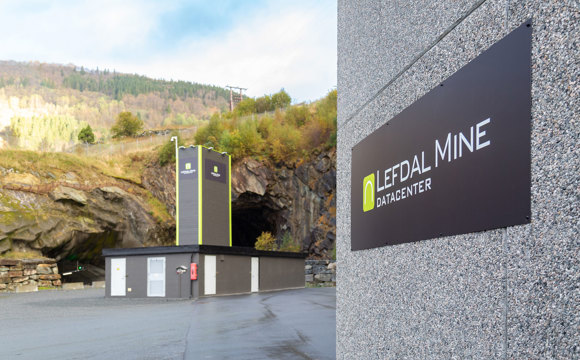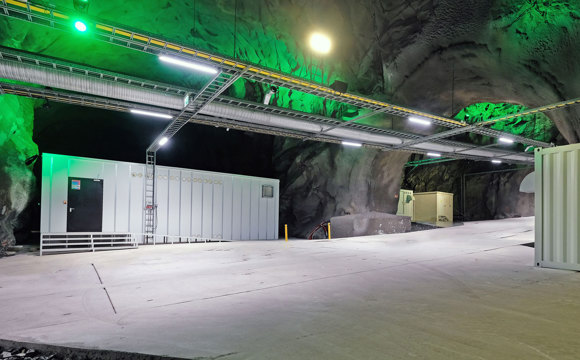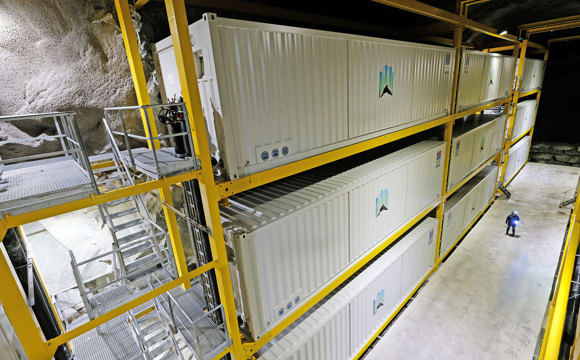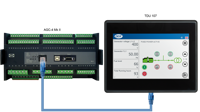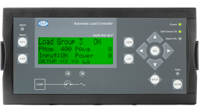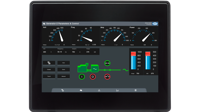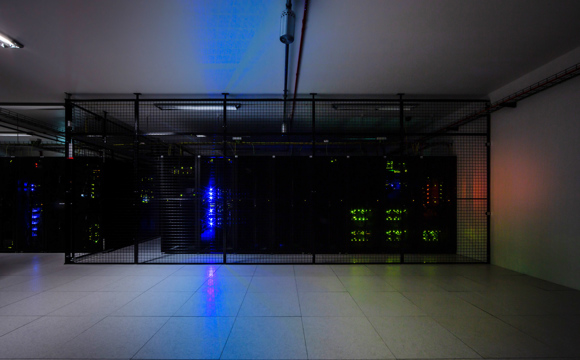NORWEGIAN DATA CENTRE COMBINES FLEXIBILITY AND RELIABILITY WITH DEIF
A user-friendly and robust power management system based on DEIF AGC-4 and ALC-4 controllers is helping the Lefdal Mine Datacenter in Norway offer flexible and reliable services for a string of demanding international customers. “The DEIF controllers are the heart of our data centre control”, says the satisfied Technical Manager.
The glittering waters of the fjord mirror the trees on the steep slopes that rise from the water’s edge to form rugged mountain ranges receding into the misty distance. The scenery at Lefdal in western Norway is breath-taking, but there’s more to the landscape than good looks: On the northern shore of the fjord lies the Lefdal Mine Datacenter, and the site was not chosen for its natural beauty but for the practical benefits it provides. The underground tunnel complex of the centre is well protected from adverse weather and unauthorised access, and the centre benefits from an ample supply of power and cooling that is cheap – and climate friendly.
“We’re located at the core of green energy production in the Vestlandet region,” says Kristian Todal, Site Manager at Lefdal Mine Datacenter. “Production is primarily based on hydro and wind power. Power is the most important factor in operating a data centre, and in addition to being green and renewable, it’s also cheap here in Norway. Also, we’ve got the 500 metre-deep Nordfjorden right outside where we get cold sea water for cooling the data centre.”
The abundant natural resources help the company work towards its vision of offering the most cost-effective, secure, flexible, and green data centre solution in Europe. In addition to climate-friendly resources, however, flexibility and reliability are crucial to delivering the services that Lefdal Mine Datacenter offers, and DEIF products are playing a prominent role in ensuring successful performance.
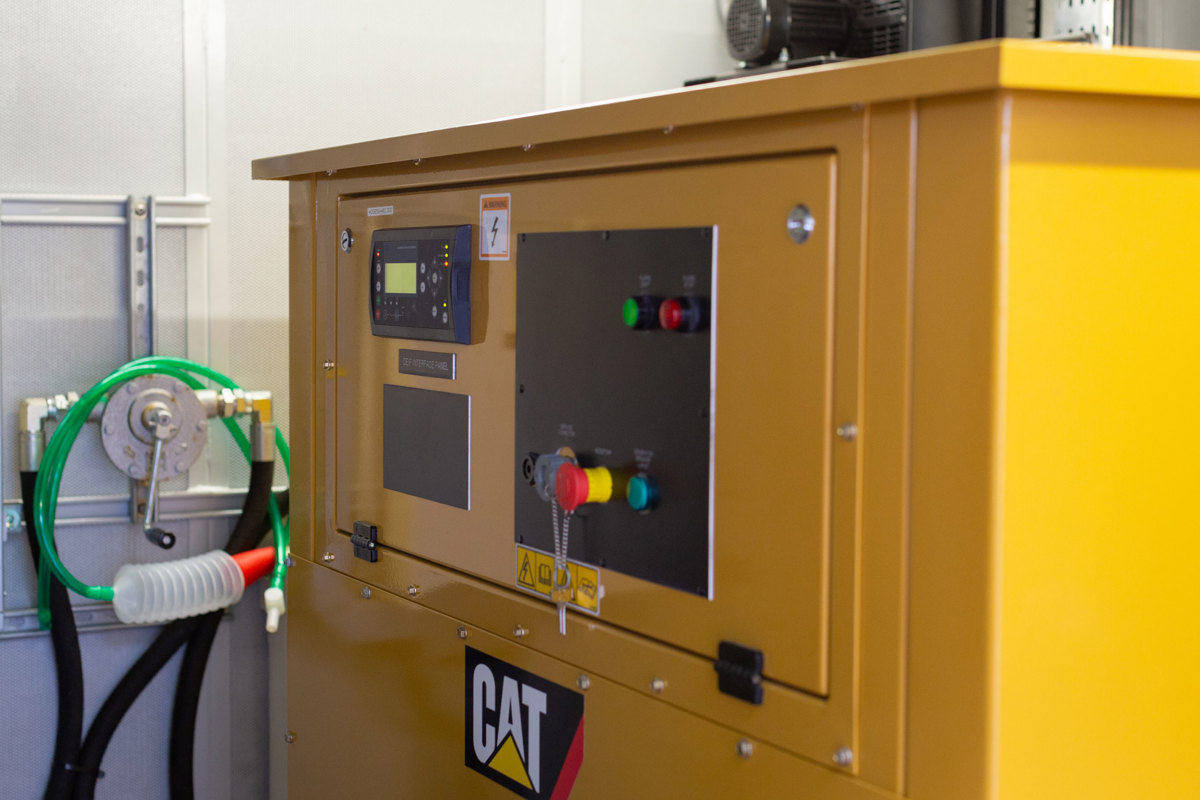
One of the data centre’s two 2.5 MW emergency generators with a DEIF AGC-4 controller
A plug and play approach to whitespace
As data storage, analytics, and processing becomes increasingly cloud-based, the demand for data centre capacity continues to grow, and flexibility is an important parameter: The ability to scale up or down as needed, or move and reconfigure server racks, is important to many customers. Demand changes, situations change, and data centres must be able to change accordingly.
Lefdal Mine Datacenter offers high flexibility through a modular, plug and play approach to data centre whitespace: Customers can order a shipping container from Lefdal Mine Datacenter’s partner Rittal. The container comes fully prepared for power, cooling, and communications, and the customer can fit the required server racks in it. The container is then shipped to Lefdal, driven down the mine on a truck, and lifted into place on a sturdy steel shelf. Connecting the container to power, cooling, and fibre cables is quick and easy, and the solution is up and running in a fraction of the time it would take to build a traditional data centre whitespace.
“The main advantage is that we get ready-made containers that can be installed quickly. We can typically install a container in eight hours or so from their arrival at Lefdal”, explains Kristian Todal. “The same thing applies to replacing containers: You can quickly take out a customer container and install a new one.”
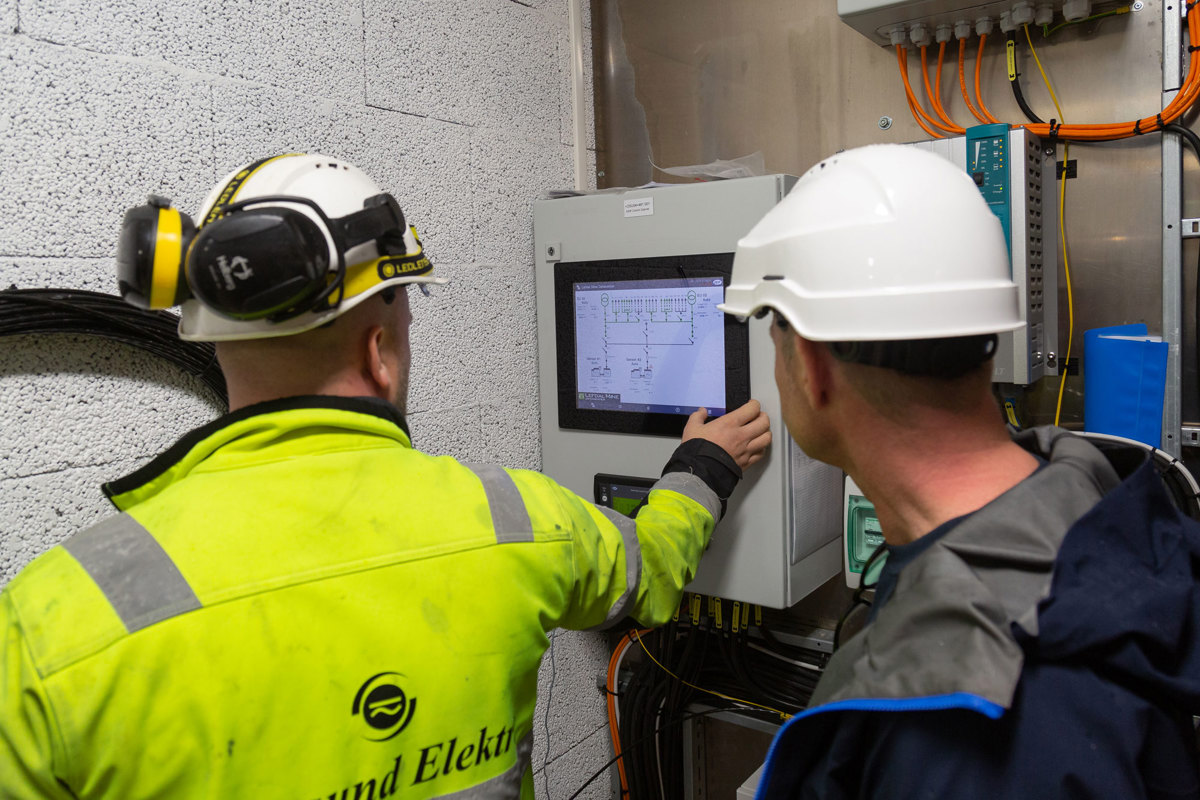
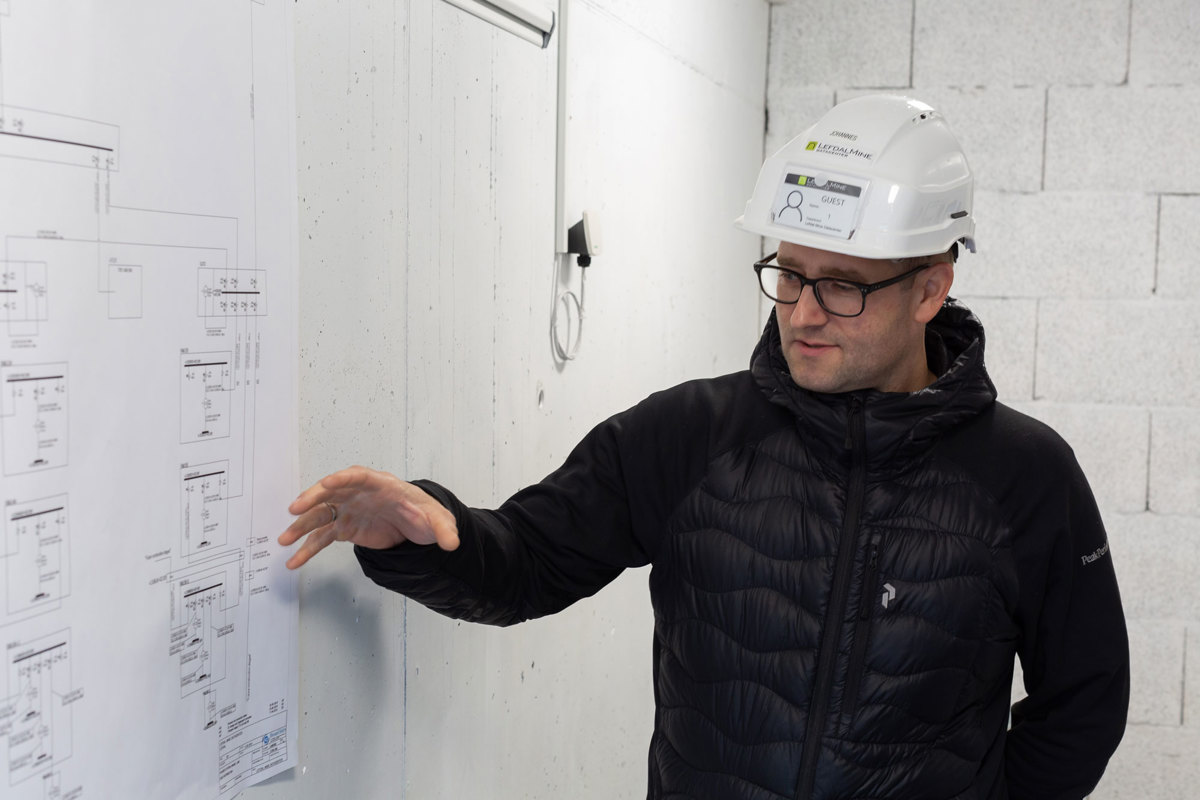
Major international customers
Until 2008, the mine produced olivine, a mineral used in metalworking. When production ceased, the former foreman and his son hit upon the idea of using the site as a data centre, and the Lefdal Mine Datacenter opened in 2015. It offers 120,000 square metres of floor space distributed across 6 levels and a total of 75 chambers ready for data centre whitespace. The temperature in the mine is 9 degrees Celsius all year. The Tier III compliant centre design and the competitive prices (due to the low cost of power and cooling) has attracted several international customers from many different businesses and countries.
“Big international clients make up the major part of our customer portfolio”, says Kristian Todal. “They come from various businesses; many come from the so-called HPC (high performance computing) segment – for example AI (artificial intelligence) and research environments. They generally need a lot of power and high density, and it’s a segment with clients that require redundancy”.
Watch the webinar and get in-depth knowledge of critical power
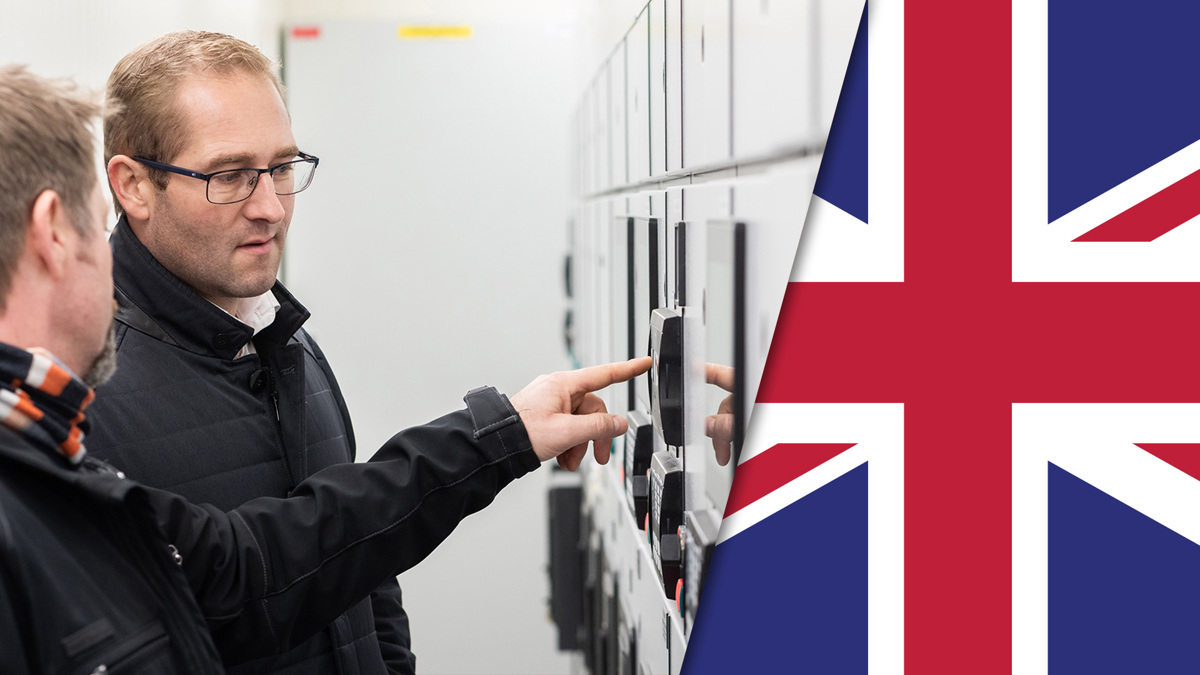
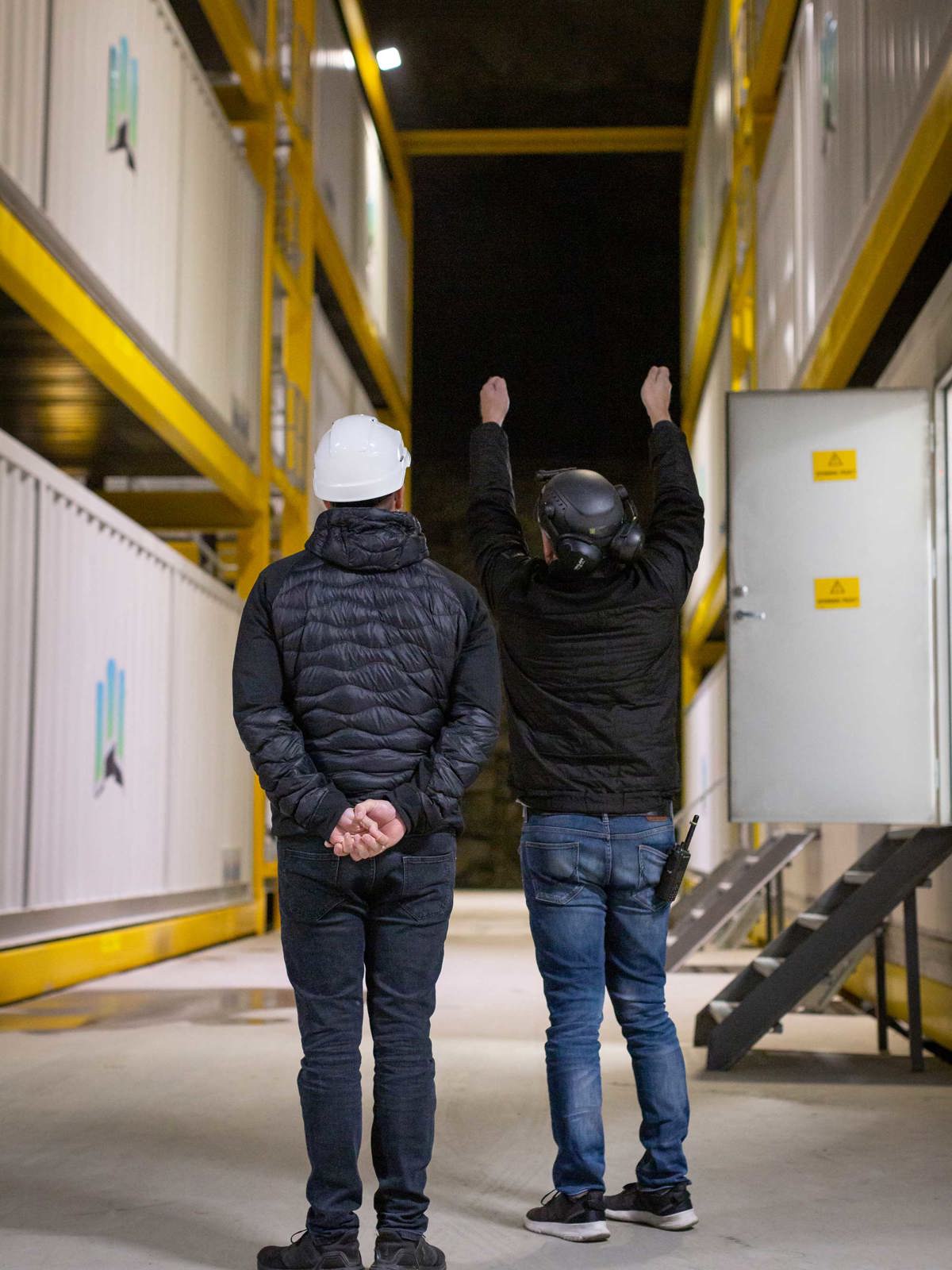
Ensuring redundancy with DEIF power management
Even though the hydro-driven mains supply is very stable (delivering 99.97% uptime for the past 10 years), and mains failures are very rare, the voltage can fluctuate because the transmission cables are exposed to adverse weather conditions. To safeguard against both blackouts and fluctuations, Lefdal Mine Datacenter relies on two 2.5 MW emergency generators and uninterruptible power supply (UPS) units.
“Some of our customers don’t require redundancy, but most of them require various levels of redundant services. That typically means between 99 and 100% uptime”, explains Paul Grytting, Technical Manager at Lefdal Mine Datacenter. “We have a 22 kV line with UPS support for customers requiring redundancy so they get a power supply without interruptions in case mains power fails. We have an A line and a B line to the mine, and we provide redundant power from both with generator support if needed.”
The power supply is controlled using a DEIF power management system (PMS) that continuously monitors the installation. It consists of two DEIF AGC-4 automatic genset controllers managing the two emergency generators, two DEIF AGC-4 Mains controller monitoring the mains supply, and six DEIF ALC-4 automatic load controller handling the load. Full PMS system is made scalable, with support of up to 32 generators and mains feeders. Number of ALC’s will also be scaled up. In addition, the system includes DEIF HMI screens that provide an easy overview and access to the system.
Compliant with Tier III requirements
The controllers continuously exchange status and availability information, instantly and automatically switching from mains to UPS and genset power and prioritising consumers if needed. This gives the centre the reliable power it requires, and Paul Grytting is very satisfied with the performance of the PMS.
“The DEIF controllers are the heart of our data centre control”, he says. “Without the DEIF PMS, we are unable to serve our customers and cover our own requirements. The DEIF systems have worked really, really well. We’ve had no problems in case of power failures”. He adds that the centre tests its critical power system once a month, running the tests through the DEIF system. “It works to our satisfaction; we’ve had no problems with the DEIF controllers during tests of the critical power system. It’s been quite good!”
As a result of the reliable mains power and the critical power solution managed by the DEIF PMS, Lefdal Mine Datacenter offers its customers world-class redundancy. “Our uptime is 100% for customers with redundancy”, says Kristian Todal. “In a Tier III design, 1.6 hours of downtime per year is the maximum allowed, and we’re well below that limit”.
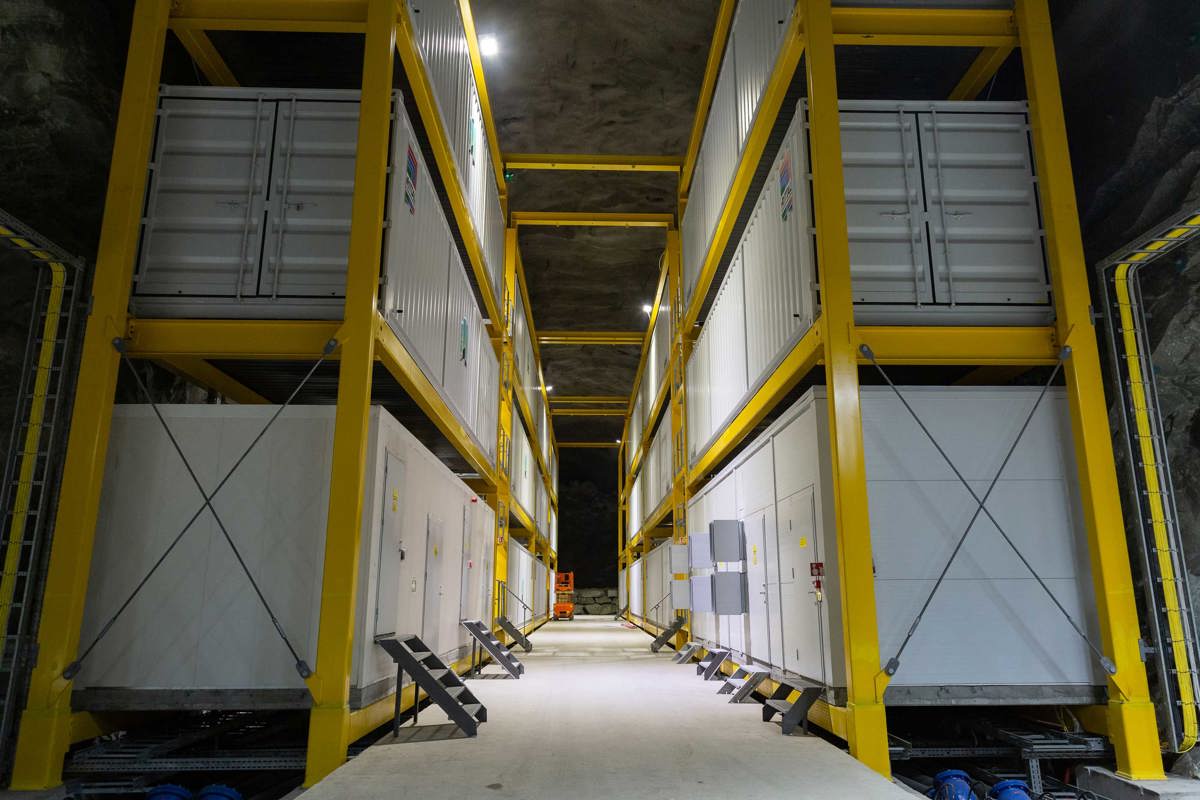
Lefdal Mine Datacenter offers containerised whitespace solutions that provide maximum flexibility and short lead times
A PMS built for scalability
The DEIF PMS is built for scalability. Adding more server containers or whitespaces to the system is quick and easy, as the system is prepared for more outputs. As soon as the load for the new consumers has been defined in the system, the PMS automatically manages the increased load. This gives Lefdal Mine Datacenter the flexibility to quickly scale up as required; a crucial requirement given the centre’s containerised server rack concept.
“If the site expands, we need a system that can be scaled up and expanded to match our expansion work”, comments Paul Grytting. “DEIF can help us in that regard.”
Easy setup and quick support make life easier
In addition to providing reliable power management and unmatched flexibility, the DEIF PMS is easy to set up and configure, according to Sivert Barmen Solvåg, Automation Engineer at electrical and automation engineering company Ulvesund Elektro. He was involved in installing and commissioning the DEIF systems and energy management systems at the data centre in 2015 and has been doing maintenance and reconfiguration work since then.
“I think the DEIF system is simple to configure”, he says. “I like the fact that the controllers are ready-made and set up with preconfigured parameters so we only need to change the things that are necessary for our site and plant. An example could be the time before closing and opening breakers, setting priorities – that kind of thing”.
Sivert Barmen Solvåg is happy with the product and application support provided by DEIF when needed: “There will always be questions along the way”, he says. “It was great to have DEIF support to rely on. They’ve always been very helpful – on this project and on other projects where we’ve used DEIF systems.”
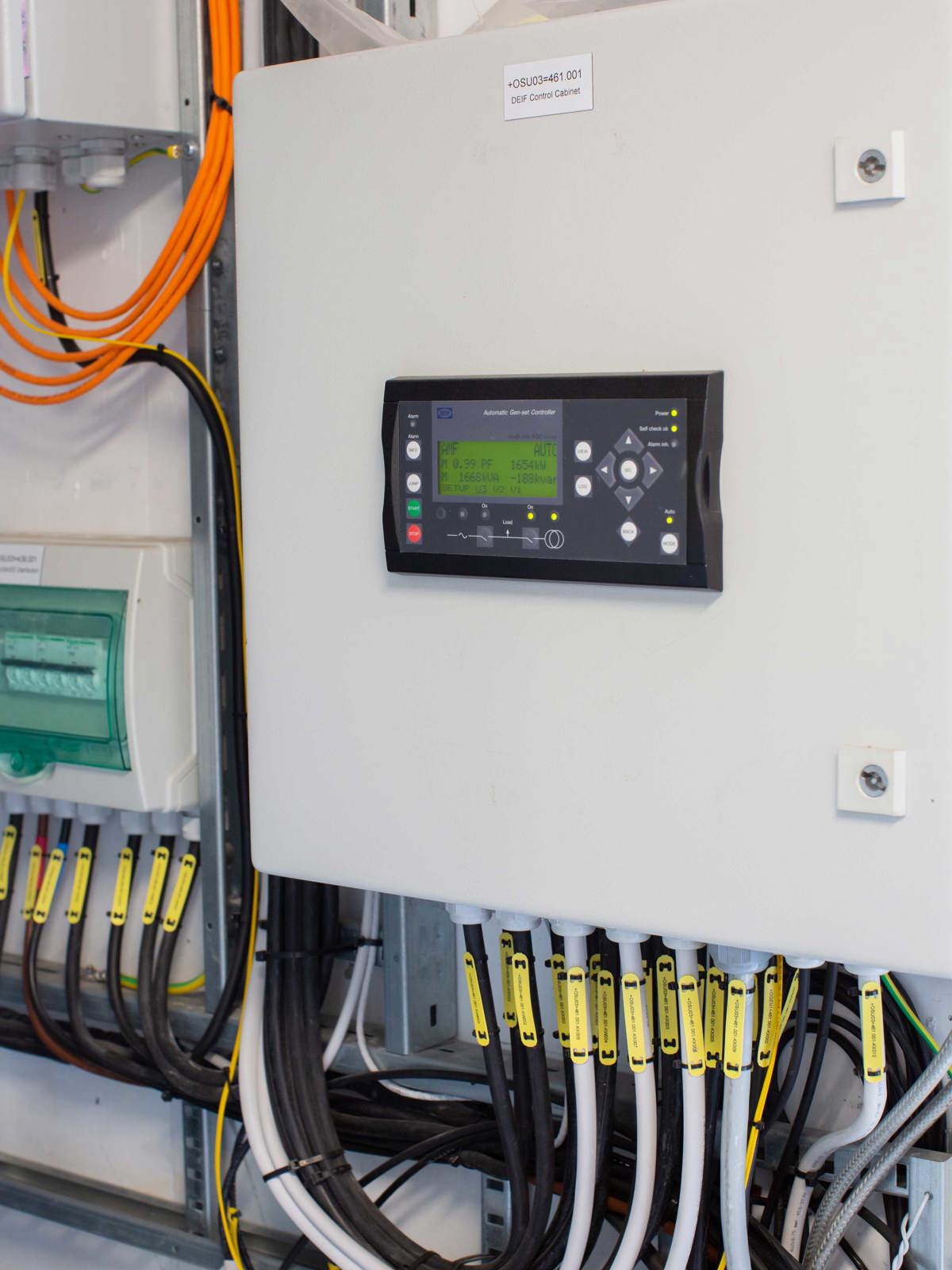
A DEIF AGC-4 Mains monitors the mains power supply and switches to backup power in the event of mains failure or voltage fluctuations
Optimism about the future
The future seems bright for Lefdal Mine Datacenter and for the Norwegian data centre business in general. Lefdal Mine Datacenter is involved in building a cluster of data centres in Norway for sharing competences and experiences across regions, and Kristian Todal is confident that the high competence levels of the Norwegian data centre industry will pay off. “We will see more players, and many of the existing ones will grow rapidly in future based on the power situation and the level of competence in the entire sector,” he says.
On the shore of Nordfjorden, too, things are moving in a positive direction. Lefdal Mine Datacenter management is looking into options for reusing waste heat from its cooling system, further strengthening its green profile. And in 2019, the centre got permission to add more mains lines to its power system, taking its power capacity from 20 MVA to 60 MVA. The new power setup is scheduled to become operational in the second quarter of 2022, boosting the capacity of the data centre.
As Lefdal Mine Datacenter prepares to scale up, and offer more power and capacity for present and future customers, the DEIF PMS will be able to match that expansion through reliable redundancy and user-friendly flexibility.
“I’m quite satisfied with DEIF. It has what you need, and it’s a stable and robust system that is very easy to configure and set up”, comments Sivert Barmen Solvåg, and Site Manager Kristian Todal concludes: “The ability to control, monitor and manage power is important for us at Lefdal. We’re very satisfied with the DEIF products we have and the flexibility that they give us”.
Read our guide about data centres
-

Contact us to discuss your options
- 90 years of energy pioneering
- Manufactured at the highest standards
- Superior quality
- Unmatched service and support
- Made in Denmark

